Check my main for my bio. None of these posts are tagged, proceed at own risk. Currently using this blog to test out new themes.
Don't wanna be here? Send us removal request.
Text
one of the most impactful moments of Yokohama Kaidashi Kikou is when you first see the observation plane fly overhead of cafe alpha and then like 50? chapters down the line you see it for maybe the third time in the series and its revealed that the plane orbits the earth at a rate of one rotation every 7 years and you realise that despite the slow and relaxed pace of the narrative 21 years have passed in canon and then you start to remember that some of the elderly characters have all but disappeared from the story, the children alpha used to babysit not around anymore because theyre independent adults living lives entirely off screen, places alpha once visited have long since been reclaimed by nature and its a genuinely emotional moment to process everything is transient in this narrative
26 notes
·
View notes
Text

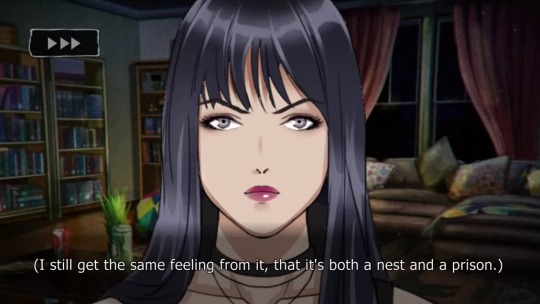
hfmc's relationship to her house is my favourite thread throughout the Havenfall stories.
She won't sleep in any of the bedrooms because it'll mean thinking about it and if she thinks about it she'll stop functioning so she falls asleep to shitty documentaries on the couch every single night and it's never not weird when she has people over. There is a full half of her own house she treats like a cognitohazard.
She lives like this for over three years!!
44 notes
·
View notes
Photo
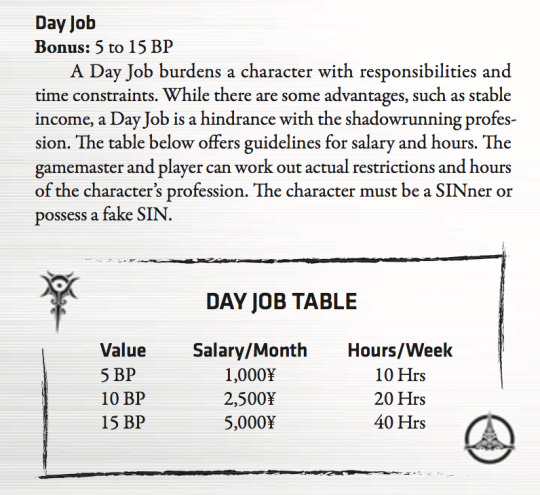
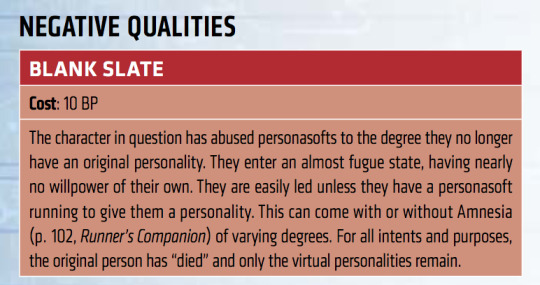
working 20 hrs a week is on the same level of badness as having your innate personhood sandblasted out of your brain and replaced with a virtual personality program
3K notes
·
View notes
Text
a while ago I read this sci-fi short story from the 50s where a guy is kidnapped and interrogated by aliens using a very sophisticated lie detector, but he realizes that the lie detector works off technical truth, and with some careful phrasing and misdirection, he manages to make them believe that humans are a race of immortal, overpowered, omniscient telepathic beings. and it works.
my favorite part is when he tells them that humans are "capable of transportation without the aid of spaceships or any vehicles, just by using mental power to control physical matter". it's true, we can. it's called walking.
44K notes
·
View notes
Text
People don't like to admit it bcs cringe or w/e but Homestuck really did revolutionize the webcomic as a storytelling medium and I am endlessly frustrated that before webcomic artists could really stretch our legs fucking webtoonz swooped in, set a new, more restrictive standard, and then monetized and monopolized the ever living fuck out of the concept of The Webcomic until it drove away anyone who couldn't be a professional quality manga artist for free, and now the only webcomics that actually feel like spiritual successors to Homestuck are so obscure they're basically cult classics that you have to beg people to read.
Like it's just so wild to be in high school and see Homestuck be like "we're using like fifteen different artistic mediums to tell this story bcs we can" and be really fucking inspired by that, only to grow up and see basically every webcomic ever have to conform to One Single Standard or fucking perish.
82K notes
·
View notes
Text
that whole interview is really good actually if anyone wants to read it
2K notes
·
View notes
Text

I can't stress enough how much I miss StumbleUpon
162K notes
·
View notes
Text
“That’s why high school, or a crappy job, or any other restrictive circumstance can be dangerous: They make dreams too painful to bear. To avoid longing, we hunker down, wait, and resolve to just survive. Great art becomes a reminder of the art you want to be making, and of the gigantic world outside of your small, seemingly inescapable one. We hide from great things because they inspire us, and in this state, inspiration hurts.”
— One of the best articles I’ve ever read. Rookie Mag. By Spencer Tweedy. (via wildyork)
82K notes
·
View notes
Text
Palmer, an obsessive chronicler of her own life in songs, poems, blog posts, and a memoir, got her start as half of the punk cabaret band the Dresden Dolls, but she is perhaps more famous for her ability to attract a tight-knit and devoted following wherever she goes. In 2012, she became the first musician to raise more than $1 million on Kickstarter and later became one of Patreon’s most successful artists. As Palmer explained in her book The Art of Asking — part memoir, part manifesto on the virtues of asking for assistance of various kinds — she had built her entire career on “messy exchanges of goodwill and the swapping of favors.” Out of this mess, she argues, a utopian sort of community formed: “There was no distinction between fans and friends.”
0 notes
Text
"Surely a tabletop RPG whose conflict resolution mechanics instruct its players to spend all night playing cards doesn't mean it seriously" like, I've bumped into tabletop RPGs whose player-facing instructions have in all apparent sincerity included directives to variously start a fight club, violate the Migratory Birds Act, set your own character sheet on fire, and menace the other players with a knife. You tell me!
4K notes
·
View notes
Text
Do you know how to store data to last decades? Are you overwhelmed by the task of archiving the trans internet?
Introducing TFR’s first guest column, “Archiving Your Trans Microlibrary” by my lovely editor @iwritethingssometimes , a practical guide to the techie side of literary preservation.
232 notes
·
View notes
Text
[“A distinctive and common feature of early twentieth-century marriage self-help texts is their concern with the problem of mutual physical repulsion by wives and husbands. Sexologists and physicians by their own accounts were very busy teaching women and men how to make their bodies, and heterosexual sex itself, less repellent. Stopes was worried about the “mental revolt and loathing” that wives may feel in reaction to their husbands’ sexual violence; Ellis warned of the “stage of apparent repulsion and passivity” that seemed to be a normal part of women’s experience of sex with their husbands (a stage he believed would eventually give way to “active participation”); William Robinson, another early twentieth-century sexologist and author whom I discuss in more detail shortly, hoped that his marriage-advice manuals would address the “disgust,” “deep hatred,” and “desire for injury and revenge” that heterosexual couples felt for each other.
If heterosexual, reproductive, married intercourse was a core organizing principle of American life in the twentieth century, how could it also be so disgusting and rage inducing? On women’s end, the most obvious answer comes from sexologists’ own accounts: marriage was a site of repeated rape and dehumanization of women by their husbands, a situation that women struggled to endure and survive. But even beyond the well-documented patriarchal violence of marriage were other contributing factors. Intercourse between white American men and women—even as it was the key to the eugenics project of passing on “superior blood” and the patriarchal project of securing women’s free reproductive labor—was also a sin of the flesh. Puritan beliefs about sex as degrading and bodies as unclean were in widespread circulation in the United States at the turn of the century, casting heterosexual intercourse as “a mere matter of duty: to be permitted by sufferance; joyless, disgusting in itself; a something to be avoided, even in thought, other than it is a necessity for the continuance of the race.”]
Jane Ward, The Tragedy of Heterosexuality
486 notes
·
View notes
Text
Really good article on Barbardos PM Mia Mottley, who is secretly one of the best national leaders currently in power. The global financial system and the fight against climate change are confronting one another head-on in the Caribbean right now.
...Mottley would come to see the traps of [the global financial] system as fundamentally unjust, born from generations of colonial rule. Just as outsiders once pillaged the Caribbean for wealth created by the hands of slaves, investors in those former imperial powers now squeezed former territories for their assets, for access to markets, for interest on loans. And she would have to contend with all of that waiting for the next storm, knowing she governed a dot of land isolated in one of the most vulnerable places on Earth... Barbados, which in 2017 had the third-highest debt per capita of any country in the world, was spending 55% of its gross domestic product each year just to pay back debts, much of it to foreign banks and investors, while spending less than 5% on environmental programs and health care.
This is true beyond the Caribbean too. In poor nations around the world — from the deserts of North Africa to the low-lying islands of the Pacific and the Caribbean — rising sovereign debt is becoming a hidden but decisive aspect of the climate crisis. According to the United Nations Conference on Trade and Development, external debt for what are called Small Island Developing States, or SIDS, more than doubled between 2008 and 2021. The IMF projected that three-quarters of emerging-market economies would pay a third or more of their tax revenue just on debt service in 2021. In the zero-sum game of budgets, that means less money for shoring up infrastructure that is already in shambles. A recent analysis by Eurodad, the European debt-and-finance advocacy organization, found that over the last six years, Latin American and Caribbean countries have slashed what they pay on anything non-debt-related by 22%. As Mottley explained to me, “We always have to put aside debt money first.”
The warming planet has turned this into a self-perpetuating cycle: Were it not for the disasters worsened by climate change, much of the region’s debt might not exist in the first place. Jamaica’s debt, for example, can be tied to the response to Hurricane Gilbert more than three decades ago. Grenada’s is in part because of Hurricane Ivan in 2004. Dominica’s 2017 loss, relative to its GDP, was the equivalent of a $44 trillion hit to the U.S. economy.
According to the World Bank, these climate-driven damages have made it difficult for the Caribbean economies to achieve anything resembling healthy growth. Since 1980, the cumulative cost of disasters has amounted to more than half of a year’s worth of total economic product for 14 Caribbean nations. The costs have eclipsed average annual GDP growth in five of them. There are poor countries with more debt, and there are island countries in the Pacific facing more imminent climate threats, but nowhere in the world do the debt and climate vulnerabilities overlap to the extent they do in the Caribbean. Fixing the debt crisis, as Persaud told me, “isn’t about countries mopping up their fiscal discipline. It is that countries on the front line face a different kind of risk. They face wipeout risk.”...
[Debts] continue to be collected despite a climate crisis that is caused almost entirely by the copious fossil fuels that those same powerful creditor nations burned to industrialize and achieve their own wealth, the very wealth that undergirds the IMF. Caribbean nations are being asked, in a sense, to pay not only their own debts but the rest of the world’s debts, too, for all the progress it made while leaving the Caribbean behind.
1K notes
·
View notes
Photo
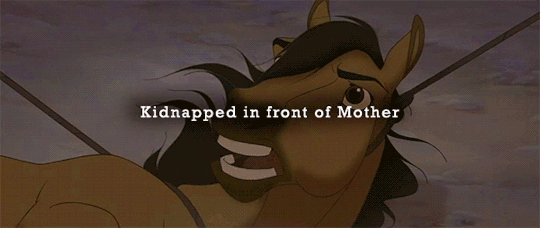
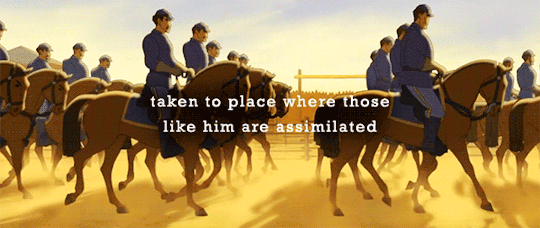
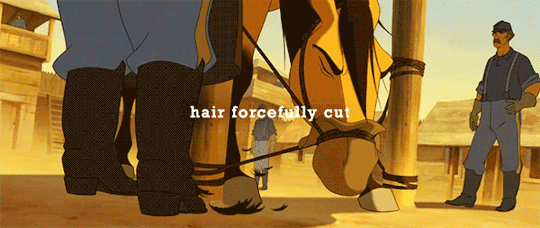
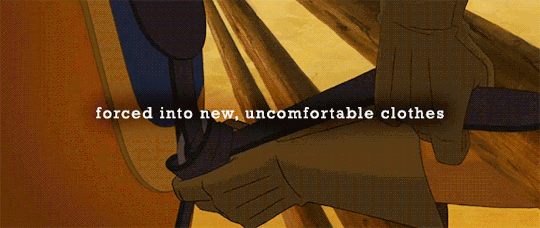
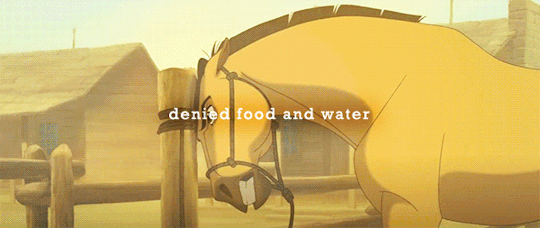
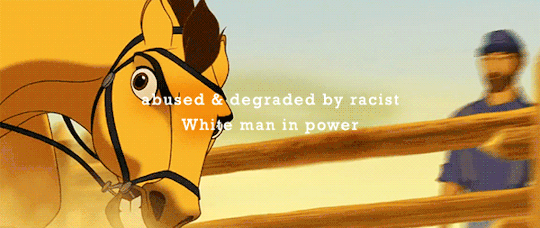

Spirit: Stallion of The Cimarron & the Indian Boarding Schools/Residential Schools allegory
84K notes
·
View notes
Text
if you:
consider yourself emo
are a fan of the genre
have ever engaged with emo definition discourse
have ever made claims about the relationship of the emo scene to queerness
you must read (irl out gay man of color in emo and cornerstone of the scene) norman brannon's essay series Emo: A Personal History in Three Parts (part 1, part 2, part 3). please and thank you
410 notes
·
View notes
Text






I bound my favorite Undertale fic, Puzzles might be fun if you tried them by lizardystopia! I'm particularly pleased with the spine - I was sweating thinking about how I could figure out how to fit the fic's name on it, but I'm happy with the solution I came up with :D
193 notes
·
View notes